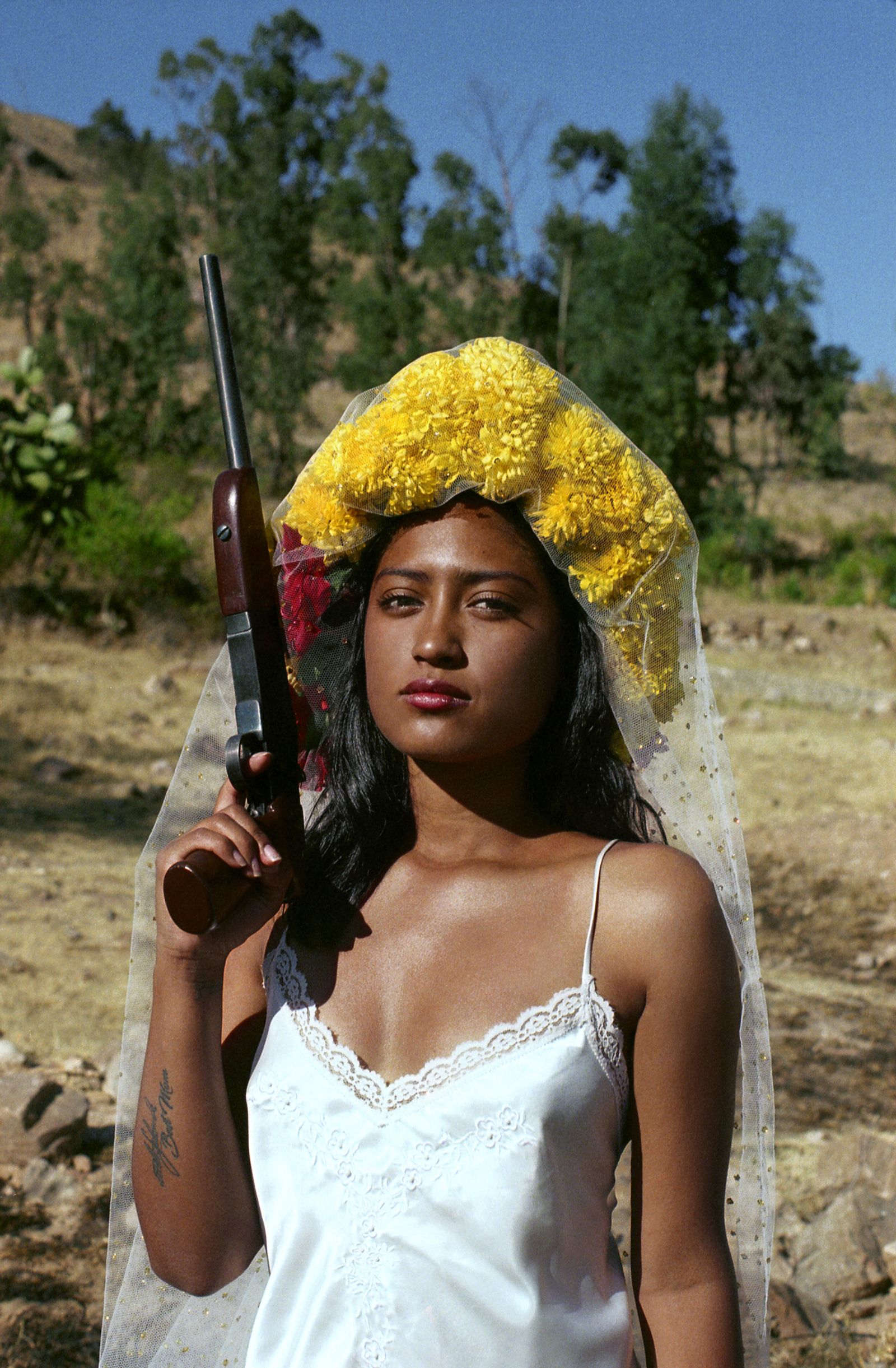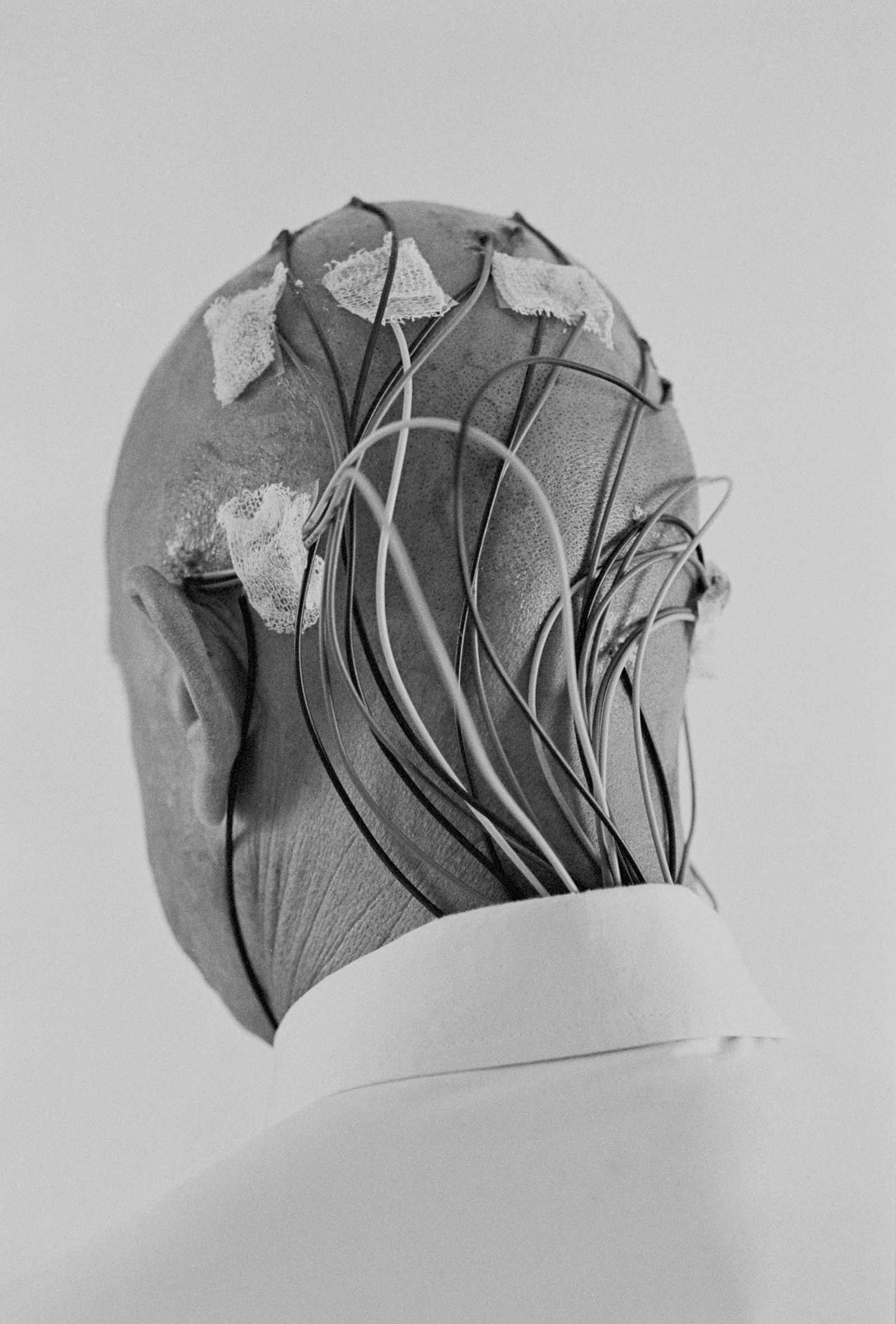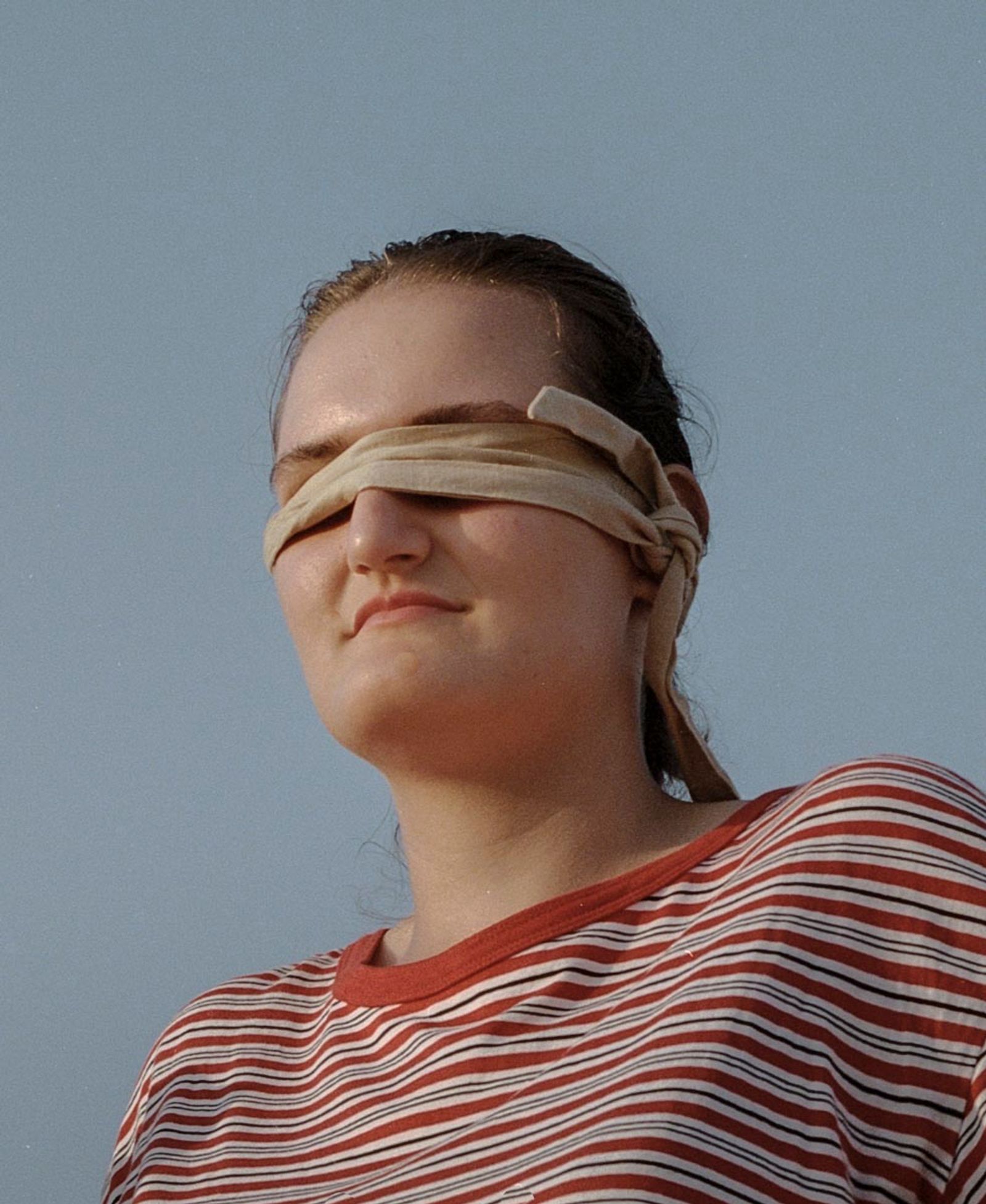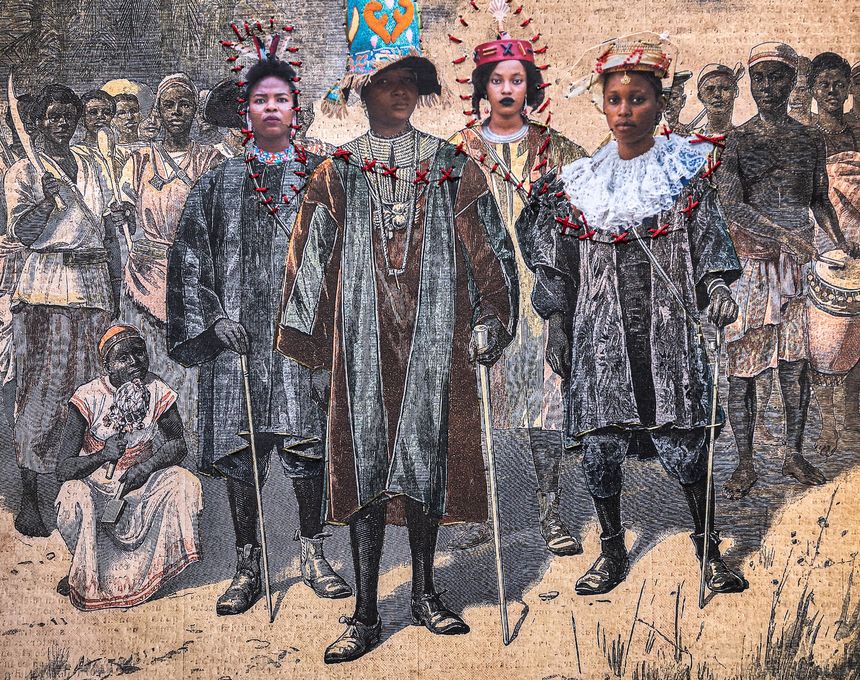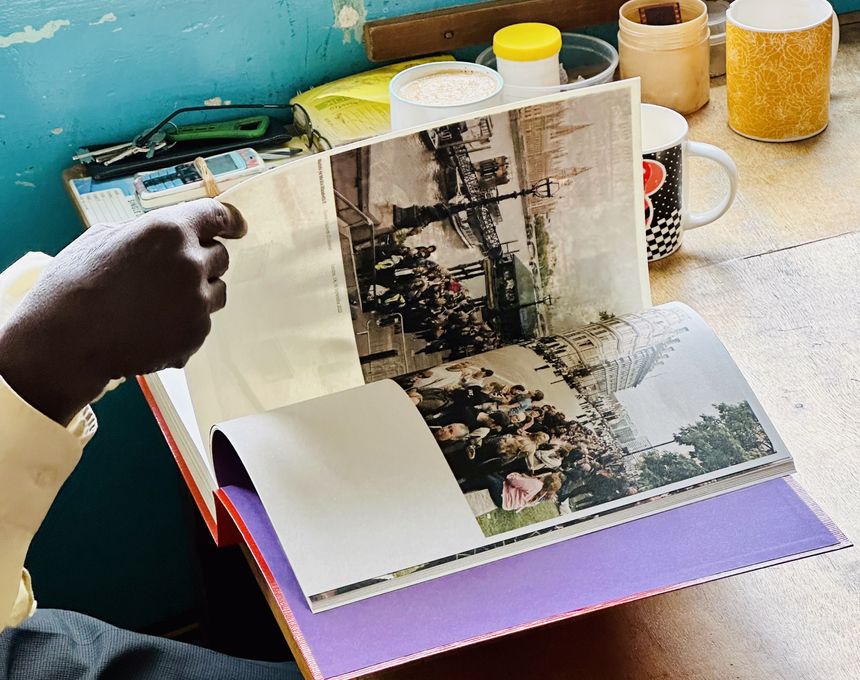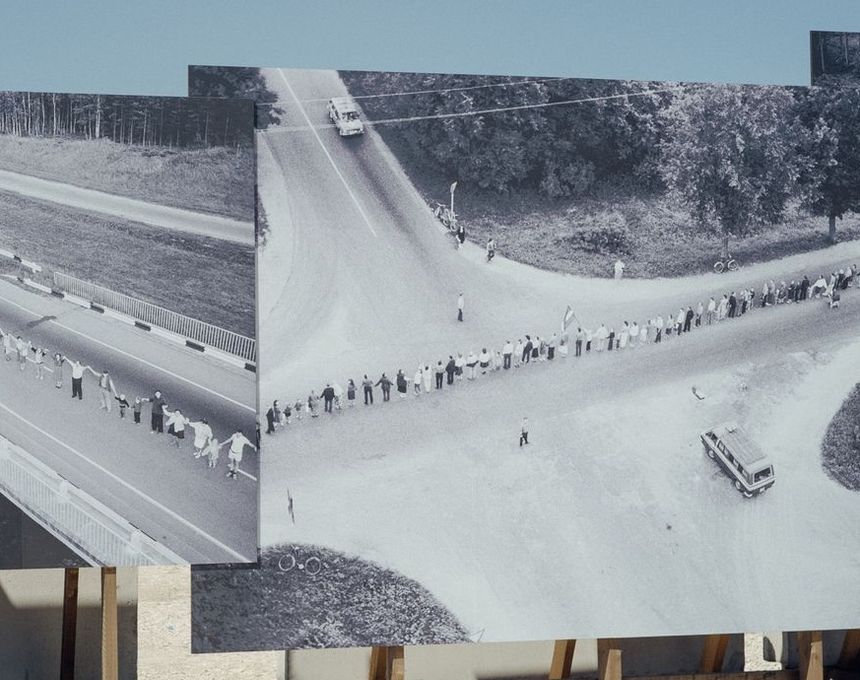FOLIO Participants Share Their Experience of the First Edition
-
Published30 Aug 2021
-
Author
One year after our first international photobook masterclass, Amit Elkayam, Emilio Nasser, Marisol Mendez, Monty Kaplan, and Riccardo Svelto reflect on how their projects improved and transformed throughout the duration of the course.
One year after our first international photobook masterclass, Amit Elkayam, Emilio Nasser, Marisol Mendez, Monty Kaplan, and Riccardo Svelto reflect on how their projects improved and transformed throughout the duration of the course.
As they find themselves at the final stages of production of their dummies, ready to present them in Bologna during PhMuseum Days between the 23rd and 26th of September, FOLIO 2020 students answer our questions and offer insights into how the masterclass influenced their practice and helped their projects transform into a book format.
“Before FOLIO my project lacked structure and was largely portrait-based. By understanding the anatomy of the work I was making, I became able to approach it through new techniques and explore different formats without compromising the theme,” says Bolivian photographer Marisol Mendez, winner of last year’s Scholarship. “By going out of my comfort zone, my project had grown richer in narrative and sharper in message”, she concludes.
Of a similar theme are the thoughts of Argentinian photographer Monty Kaplan, who remarks how the course helped him reinforce the structure and sequence of a conceptually well-framed project that was lacking method and order: “I not only needed a shape for my material, but also for myself to understand how to work with it”. One of the first steps in working with the editor, after evaluating if there is room for producing more images, is that of defining the best use and position, both conceptually and within the layout, of the different types of imagery and eventual textual or graphic elements that form the body of work. Not all the projects get to FOLIO at the same stage of development. For Emilio Nasser, an Argentinian based in Switzerland, the masterclass guided him toward finalizing the last part of the production of images and to “think of the book as a living object in continuous change, while paying attention to the importance of the reader as an activator of the work”.
Riccardo Svelto, a photographer from Florence and recipient of the publication opportunity offered by Witty Books during the first edition, explains that at the beginning his series was just an idea to which he was very affectionate: “Thanks to the tutors and all the other students, my project matured and got to contain the richness of a collective work, in which doubts, mistakes, trials and suggestions have been shared and contributed by everyone”. When it comes to contamination of ideas and methodologies, Marisol believes that every project obeys a different logic and that it has a unique way of transforming into a book: “Seeing others search for this logic, have breakthroughs, breakdowns, stumble, rewind and restart, was very encouraging because it reminded me that everyone’s path is different but never a straight or fixed one”. At the core of the course, there is the idea that everyone can access and observe at any time the state of development of all the works, a key element of the learning process. All the participants are encouraged to upload every step they do on the cloud to make it available for both the other students, that can take inspiration from it, and the tutors, that can closely follow the progress made. “Being able to work with such a publisher as Witty Books has been a big opportunity,” keeps on Riccardo, “the masterclass offered me the rare privilege of witnessing a process that is usually an intimate and unaccessible communication between the artist and the editor”.
It emerged that one of the strongest features of FOLIO has been the opportunity to meet other professionals and their respective approaches, being able to share doubts and suggestions and grow together through a collaborative process. “It allowed me to temporarily step out of what is most of the time a very solitary routine”, says Amit Elkayam, an Israeli photographer with a background in photojournalism. Monty fully agrees on the same point, adding that “the masterclass generated a positive open dialogue in which everyone’s transparency and vulnerability lead to sharing ideas and overcoming common problems”. The fact that the course was entirely digitally based, permitted the constitution of an international group while maintaining a flexible workflow. Amit points out that the online experience has been fundamental because it opened up for something that the pandemic seemed to make unreachable. “Being able to stay at home and get feedback over a long period was something I didn't think was possible before FOLIO.” Similarly, Emilio is very grateful for the possibility that technology offers in the educational field, while he adds: “What I missed the most was the after-school when people relax, have casual conversations and share doubts, although surprisingly we managed to recreate it virtually”.
On top of individual and group tutoring sessions with Tommaso Parrillo and Federico Barbon, FOLIO offers a whole range of studio visits with artists, curators and gallerists, to give a wider insight into the contemporary world of photography. “I think that the studio visits gave us the possibility to re-learn about the diversity of the photographic world,” says Emilio. Monty reflects on their importance as a moment to take some distance and locate one’s practice within the wider industry: “One can easily lose sight of all the different aspects of the medium, branchings that have more to do with practical ways your photography can work and interact in the real world”.
Concluding, what would you suggest to new FOLIO participants? “Use the time you have wisely, pay attention to other participants' work. The more you help others tackle their problems, the quicker you’ll discover how it impacts the way you solve them in your work”, says Monty. For Amit it is fundamental to come with an open mind and to enjoy the process, being flexible enough to the fact that the course will reshape your body of work. “Take advantage of the relatively long breaks between each meeting, don’t procrastinate waiting for the next group meeting to gain ground” he adds. Marisol suggests lowering one's defences: “Don’t be afraid to share. Share your ideas, your process, your doubts and your triumphs. Look at the work of others, but also at the people making that work”.
“Having the opportunity to publish my first book has been the realization of a dream, that gave me a big motivation to further keep on with my work,” concludes Riccardo, ”to new FOLIO participants, I recommend to help each other and to create a sense of community, because when the masterclass comes to an end, those precious bonds are what remains”.
To see the dummy books produced within FOLIO and have a chat with the authors, come and visit us at the PhMuseum Days 2021 from the 23rd to the 26th of September in Bologna. While if you are willing to adjust your project to the book format and have the possibility to become part of Witty Books catalogue, apply here by sending us your work!
---
FOLIO is an online photobook masterclass that brings 10 different projects to a ready to publish stage, through 6 months of tutoring and the culmination in a live presentation to the PHmuseum network. Furthermore, Witty Books selects one of the participants’ works to be published in an edition of 500 as part of its catalogue. To learn more and apply, visit FOLIO 2021. Early Bird Deadline: 31 August | Final Deadline: 10 September.
